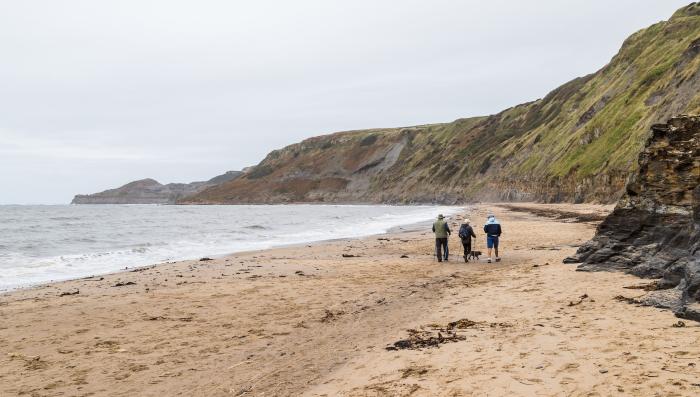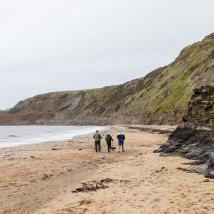ARC EoE researchers are ensuring that palliative care research reflects the needs of people in rural and coastal areas, so that services can be designed more equitably. Community engagement is crucial in this project to improve access to high-quality palliative care, which will help to reduce health inequalities and improve experiences for patients and families facing life-limiting illness.

The Palliative and End-of-Life Care theme research team explain more in this blog.
There is limited capacity for palliative and end-of-life care (PEoLC) research in coastal and rural communities. Much of this research has centred around large university cities and urban areas, leaving significant gaps in understanding and service provision for people living in more remote locations. These communities continue to face significant healthcare inequalities. Improving the quality and experience of PEoLC is especially vital in coastal and rural areas, where access to services and support is often limited and tailored approaches are needed.
“Our project seeks to identify, develop and evaluate palliative research collaborations, specifically those that address inequalities in rural and coastal communities to ensure services are better designed to meet their needs, improve access, quality of care and health outcomes in these communities.”
Dr Caroline Barry, Joint PI and Consultant in Palliative Medicine, Norwich Medical School
We formulated the study in response to Ambition 5 of the national PEoLC framework Transforming Care in Later Life, as well as local priorities within Norfolk, Suffolk and North East Essex Integrated Care Systems (ICS). Drawing on our existing clinical and academic networks and learning from previous ARC EoE projects, we identified an urgent need to map out existing research capability and address barriers to working across organisations to improve PEoLC services. Previous applied clinical research shows why inclusive approaches working with and engaging communities are so important in research, and how they drive sustainable improvements in care.
We are conducting a multi-component project to understand current PEoLC research capacity and capability across the coastal and rural regions of the East of England. Our approach includes:
- A rapid literature review to identify known barriers, facilitators and effective capacity-building models.
- An online and paper survey of palliative care professionals and researchers.
- Community engagement events with people affected by death, dying and bereavement, alongside health and social care practitioners.
- Findings will directly inform a funding application to support our longer-term plans to establish coastal and rural palliative care research networks.
This project is funded by Norfolk and Waveney Integrated Care Board’s Research Capability fund and is supported through the NIHR ARC East of England’s Palliative and End of Life Care research theme. The ARC is providing expertise in implementation science, patient and public involvement, and knowledge mobilisation for the project. We are also working in partnership with St Elizabeth Hospice to ensure a strong community link. The Norfolk, Suffolk and North East Essex ICS are engaged as key stakeholders, supporting us to apply research findings to local service design and policy.
“Community engagement events are being planned in coastal and rural areas across the East of England to meet with members of the public to find out their views on being involved in PEoLC research. These events will help us understand what the barriers or facilitators are to research participation and will shape future studies to improve care and support.”
Dr Abigail Hensley, Joint PI and Consultant in Palliative Medicine, St Elizabeth Hospice
These events are being hosted in person, in multiple locations at accessible venues to get the widest possible range of viewpoints. St Elizabeth Hospice has been funded to lead the engagement events, ensuring that a trusted local PEoLC provider is central to shaping the project.
Researchers need to ensure that community engagement is truly accessible and meaningful to people that take part, working with existing community partners. There should be a clear process for reimbursement of time and travel for participating, considering impact on individuals’ income and benefits to support their involvement.
Some of the key challenges for this project include ensuring everyone has an equal opportunity to participate, with the same support across geographically dispersed areas. We also need to balance our research ambitions with the time pressures faced by healthcare and hospice staff over a relatively short project timeframe of six months. This work needs to complement existing capacity-building initiatives and avoid duplicating efforts, and secure long-term funding to sustain engagement beyond the research project to continue improving PEoLC services.
We plan to share our findings with local health and care systems and clinical networks around the East of England and through regional engagement events, academic networks, and the NIHR Palliative Care Incubator. We will co-develop funding applications to continue this work and aim to establish coastal PEoLC research collaboratives as centres of excellence driving improvements to essential services for everyone in rural and coastal communities affected by life-limiting illnesses.
